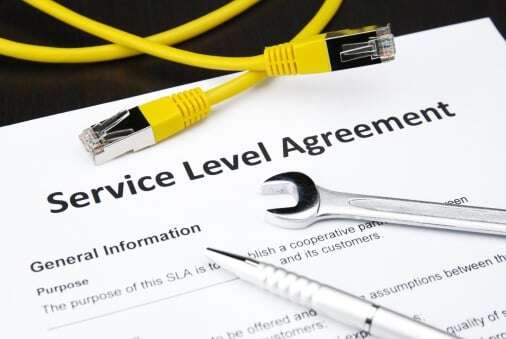 You may have filed it under “H.” Then again, you may find it among the “Ws.”
You may have filed it under “H.” Then again, you may find it among the “Ws.”
If you're like many people who invest in a new heating, ventilation and air conditioning (HVAC) system, you pay little (if any) attention to a home warranty until you must unearth it to find out: Is a repair covered under the warranty or not?
This is when many people find out what's in their warranty because this is the first time they've taken the time to read it. This is understandable, especially because a warranty is a non-negotiable agreement. After all, even if you dislike some of the terms in the fine print, it's not as though you can change them. HVAC manufacturers adopt a take-it-or-leave-it stance.
If you're having difficulty rustling up the warranty on your HVAC system, allow Experts in Your Home to address some of the basics for you:
The Term
Today's HVAC systems are built to last. But as Experts in Your Home often points out, they don't last forever. A warranty often distinguishes between the air conditioner from the furnace.
Many AC warranties expire after 10 years. For furnaces, things can get more complicated, especially if manufacturers delineate their products. For example, on one furnace “collection,” Lennox extends 10 years on “covered components,” 10 years on the compressor and 20 years on the heat exchanger (the “engine” of a furnace).
On another collection, it offers, respectively, five years, five years and 20 years. This difference underscores the fact that it pays to inspect a warranty before you purchase an HVAC system. Manufacturers offer different terms on different products and, you guessed it: generally, the more an HVAC costs, the longer the term.
The Extension
Manufacturers sometimes offer extended warranties on parts – often five or 10 years. This is where it can get tricky for consumers to assess the value of a warranty. Experts in Your Home can help you “do the math.” But it bears repeating in the meantime: an HVAC system that is properly maintained can defy virtually any warranty.
The Experts highly recommend an air conditioner tuneup in the spring and a furnace tuneup in the fall. Such preventive measures are vital to an HVAC's longevity, not to mention its reliability. Also crucial: checking the filter every month and replacing it when it's dirty.
The Void Factor
As valuable as an HVAC warranty can be for your peace of mind, certain missteps can render it void in the eyes of the manufacturer, including failing to:
- Register the HVAC system with the manufacturer within the time period specified.
- Hire a licensed contractor, like Experts in Your Home, to install the system and make repairs.
- Schedule those all-important yearly tuneups.
- Keep receipts and paperwork of maintenance checks and repairs.
The Contractor's Warranty
Though separate from the warranty on the system and it components, the very best contractors offer an installation warranty on an HVAC system. This means that in the unlikely event the unit is damaged during the installation, or problems develop later that are traced to the installation, the contractor will remedy them at no cost to you. Some contractors refer to this as “going the extra mile.” Experts in Your Home considers an installation warranty as, quite simply, the right thing to do.
If you have questions about your HVAC warranty – or wish to schedule a tuneup on your system – reach out to the Experts. You may have us filed under “E,” which we like to think signifies excellence, too.








